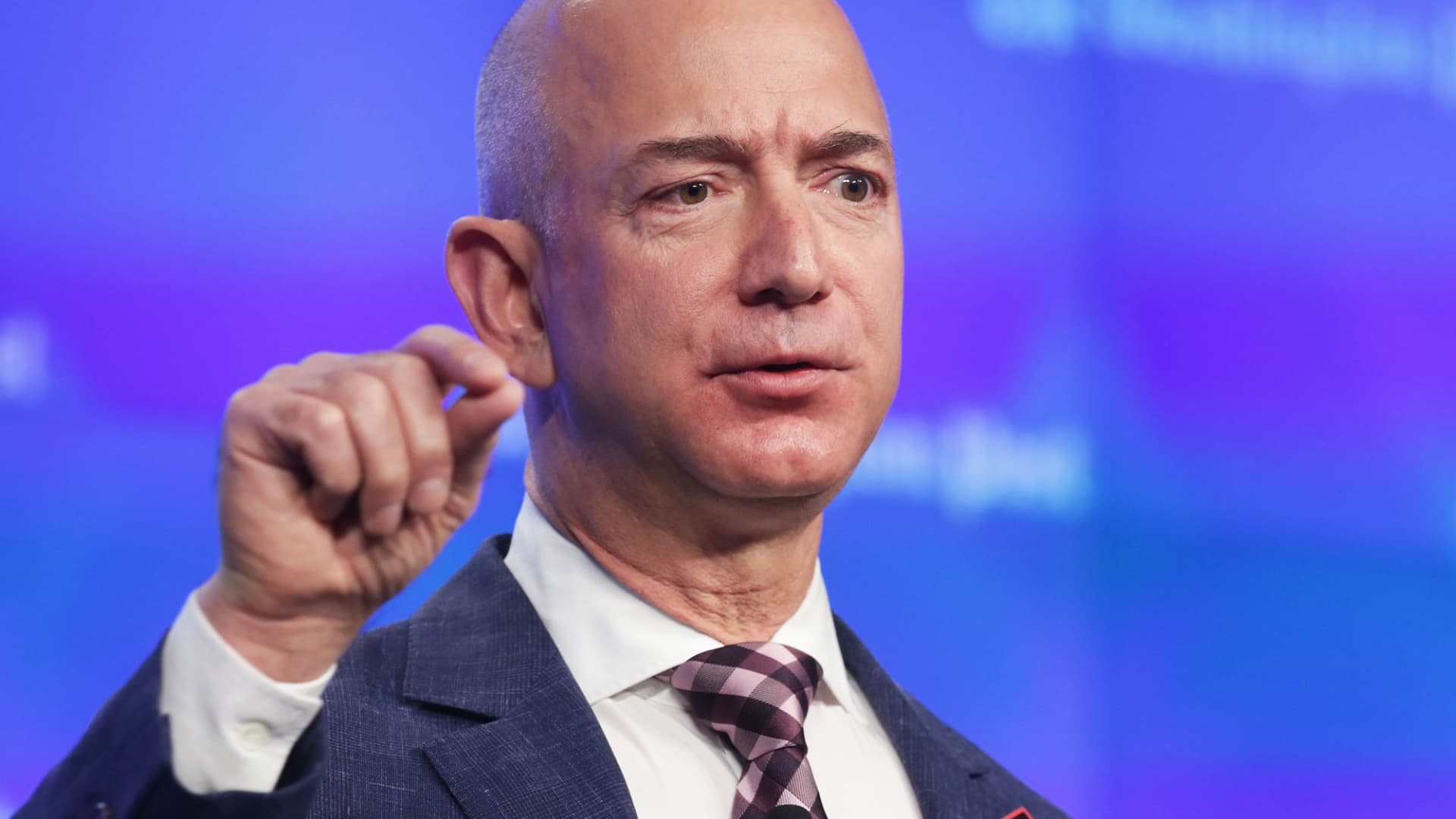
Some amazon sellers can avoid paying back sales taxes through a temporary amnesty program
Cnbc is ON AIR - VIEW NOW
Please note: this is Beta feature.
- Select a language for the TTS:
- UK English Female
- UK English Male
- US English Female
- US English Male
- Australian Female
- Australian Male
- Language selected: (auto detect) - EN
Play all audios:
Jeff Bezos Getty Images Amazon sellers owing an estimated $2 billion in uncollected sales taxes are being offered the chance to waive those obligations as part of a new multi-state
agreement. Thirteen states came together on Wednesday to announce a new sales tax amnesty program for online merchants who sell on Amazon and other sites. For three months starting Aug. 17,
sellers with potential tax liability can sign up with the Multistate Tax Commission (MTC), enabling them to become compliant and pay taxes only on future sales. The states participating are
Alabama, Arkansas, Colorado, Connecticut, Kansas, Kentucky, Louisiana, Nebraska, New Jersey, Oklahoma, Texas, Utah and Vermont. The MTC said eight more states are considering participation.
With online sales, merchants are not required to collect sales tax if they don't have a physical presence in a particular state. Amazon complicates matters. The Fulfillment by Amazon
(FBA) program lets sellers pay a fee to use Amazon's warehouses and its massive logistics operation. For businesses that use FBA, their inventory could get shipped to warehouses in
certain states, triggering the sales tax requirement. `A REAL THREAT' Richard Cram, director of the MTC's nexus program, estimates that there's an estimated $2 billion in
uncollected taxes on sales from FBA sellers. He said that Amazon sometimes makes it difficult to know where inventory is stored, leaving sellers liable for sales tax without their knowledge.
"It's a huge area of non-compliance," Cram said. About the new program, Cram said, "I'm sure we're not going to get 100 percent compliance, but even if we get
a small percentage of it, it would be worthwhile." Darien Shanske, a tax law professor at the University of California at Davis, said the amnesty program is unlikely to work unless
it's adopted and enforced nationwide. Without stringent rules, he said, there will be some sellers not charging taxes. "The main problem is that the competitor may not be
collecting tax," Shanske said. "That's a real threat." And Amazon, which didn't respond to a request for comment, may see little incentive to change its enforcement
policies unless the rest of the e-commerce market does the same. "I suppose Amazon is concerned that other platforms will stay non-compliant," Shanske said.